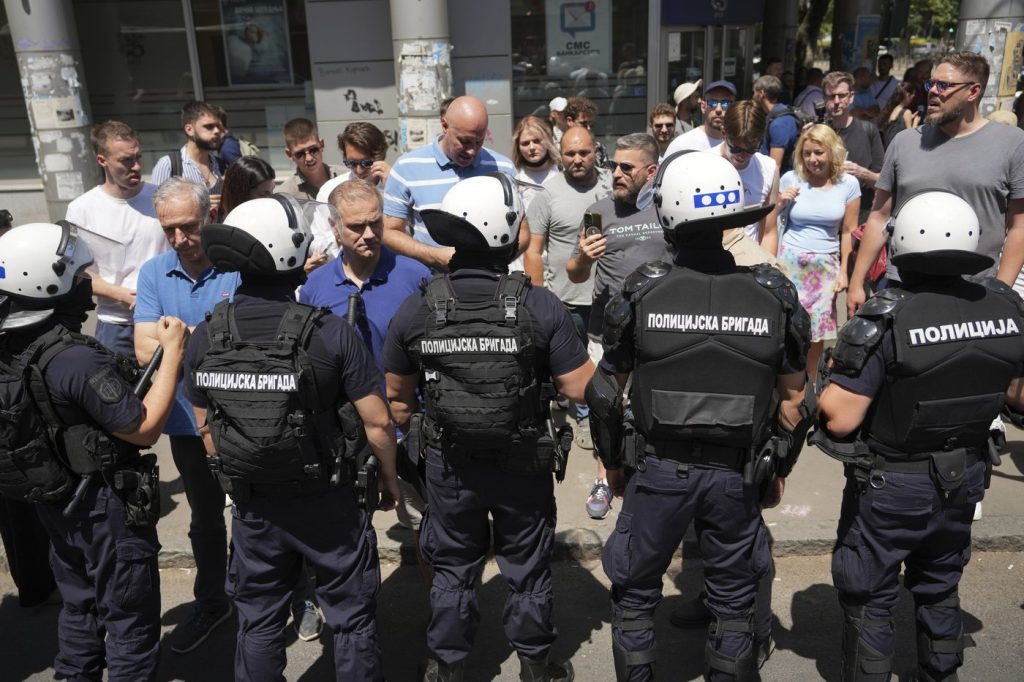BELGRADE, Serbia (AP) - The Council of Europe, Europe's leading human rights watchdog, expressed serious concerns on Friday regarding the actions of Serbian authorities in response to ongoing street protests against the government of President Aleksandar Vucic. Reports indicate that the police have employed excessive force and engaged in arbitrary detentions to suppress the protests, which have erupted in response to calls for early parliamentary elections.
Michael O'Flaherty, the Commissioner for Human Rights at the Council of Europe, issued a statement emphasizing the importance of freedom of assembly and expression, which are fundamental human rights enshrined in the European Convention on Human Rights. He asserted that it is the duty of Serbia to guarantee these rights, particularly during ongoing civil unrest.
O'Flaherty voiced his alarm over the deteriorating human rights situation in Serbia, citing assurances from the authorities during his visit in April that excessive force would not be used to control demonstrations. However, he noted a significant rise in the use of force against protesters, alongside numerous arbitrary arrests and detentions throughout the week.
Since a massive rally with tens of thousands of participants took place the previous weekend, Serbian riot police have detained numerous demonstrators, including university students and their professors, who were blocking roads and demanding an expedited parliamentary process. Tensions have escalated following this rally, with outbreaks of violence reported between protesters and riot police, contrasting with earlier months of largely peaceful demonstrations.
On Friday, police intervened to dismantle traffic blockades in Belgrade, resulting in the brief detention of several protesters. Accounts from university students involved in the protests described incidents where police allegedly injured many peaceful demonstrators, with reports indicating that some protesters sustained serious injuries, including a broken clavicle.
Authorities have denied allegations of excessive force, asserting that the protests and blockades are illegal. President Vucic characterized the protests as an act of "terror" aimed at destabilizing the state. O'Flaherty's comments raised particular concerns about the arrest of minors and the number of students facing criminal charges or requiring hospitalization due to injuries sustained during protests. He stressed the importance of accurately characterizing this predominantly peaceful, student-led movement.
Both the European Union mission in Serbia and the United Nations Human Rights Office have been closely monitoring the situation, urging restraint on all sides. The demonstrations, which have rattled Vucic's government, initially began in November 2023, following a tragic incident where a newly renovated train station canopy collapsed in northern Serbia, resulting in the deaths of 16 people. Many citizens attribute the tragedy to what they perceive as corruption-fueled negligence within state infrastructure projects.
Critics of President Vucic assert that he has become increasingly authoritarian since coming to power over a decade ago, stifling democratic freedoms while enabling corruption and organized crime. While Serbia is actively seeking European Union membership, Vucic's government has also fostered closer relations with both Russia and China, raising further questions about Serbia's political direction.











